‘A huge relief’: Swift River School reports filters, bottled water no longer needed
|
Published: 01-28-2024 9:47 AM
Modified: 01-29-2024 2:37 PM |
NEW SALEM — Swift River School’s new PFAS6 filtration system seems to be working perfectly, and 190 students and staff members will drink to that.
A little more than three years after tests of the school’s tap water revealed elevated levels of the family of “forever chemicals” used in common consumer products like food packaging and outdoor clothing, the administration says it no longer needs to rely on bottled water or filters on the water fountains.
“It’s a huge relief,” Principal Kelley Sullivan said on Friday morning. “And it probably took about two weeks before people stopped asking, ‘Is it safe to really drink?’”
New Salem and Wendell own and operate Swift River School, which uses a type of public water system known as a non-transient non-community water system. The towns previously signed up for a free round of testing under a program that tests for PFAS6 — a set of six per- and polyfluoroalkyl substances. When the school’s drinking water was tested in November 2020, the initial PFAS6 sample was 53.8 parts per trillion (ppt). Follow-up sampling completed in January 2021 indicated PFAS6 levels at 46.1 ppt. The state’s maximum contaminant level allowed for PFAS6 is 20 ppt. Compliance is based on the average of three monthly samples in a calendar quarter. Since the end of 2023, the school’s water tested in acceptable levels for PFAS6
The contaminants in the water were the result of groundwater seeping into the well on school property, according to a consultant hired to install the filtration system.
Amid the ongoing issues, the state Department of Environmental Protection (DEP) declared that a water emergency at the school — according to a letter from Andrew Kelly of the state’s Drinking Water Program — was to remain in effect until there was no longer a need to use bottled water.
Sullivan explained the school’s water fountains were equipped with PFAS filters obtained for free through a DEP grant. But the school was still legally required to offer bottled water, which also was used in the cafeteria to cook with. Sullivan mentioned the empty bottles caused the weight of the school’s recycling to skyrocket, so students were asked to bring in refillable bottles, though they would also be provided with cups for the water fountains if necessary.
“It was annoying,” third grader Avery Anderson said “[Empty bottles] were just everywhere.”
Article continues after...
Yesterday's Most Read Articles
Sullivan said it is also a relief to know the water is safe for the school’s two service dogs.
She previously said 200 gallons of bottled water cost about $250 from Thurston Springs or $560 from W.B. Mason, depending on availability. Water in the school’s distribution system could be used solely for non-potable purposes, such as flushing toilets.
The new filtration system consists mainly of four tanks that have found their home in a closet that music teacher Mike Cortina had previously used to store instruments. Cortina said his closet space is a small price to pay for healthy drinking water.
“It’s good that it’s done,” he said. “I don’t even mind it in here, honestly, because it’s accessible, and I’m just happy that it’s done.”
Maintenance Director Eric Shufelt built Cortina some storage for the displaced instruments.
“Luckily, Eric is awesome,” Cortina said.
The filtration system was installed in August and Tighe & Bond enlisted the assistance of WhiteWater Inc., which operates, manages and maintains water and wastewater systems. There were initially some problems, such as supply chain complications and a clogged distributor tube that was followed by some leaks and a pressure issue. But Sullivan said the hardship is in the rearview mirror. This will also ease the school’s financial strains, because it cost $400 each month to get the water tested by WhiteWater Inc.
“That was not something we ever budgeted for in the beginning,” Sullivan said.
Reach Domenic Poli at: dpoli@recorder.com or 413-930-4120.

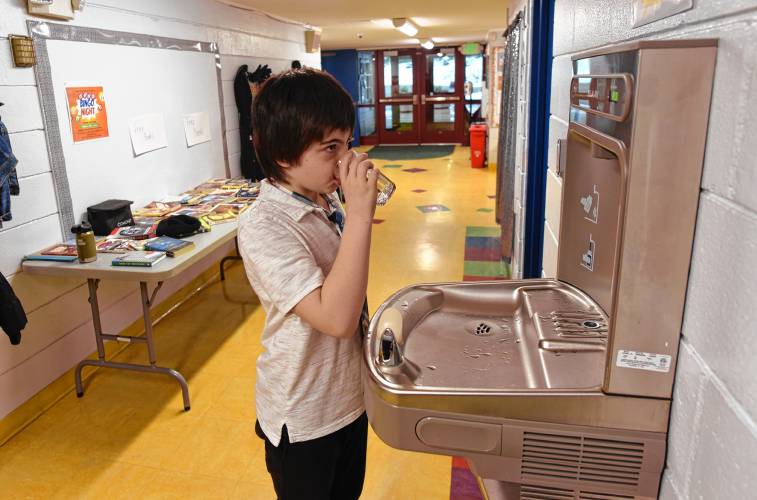
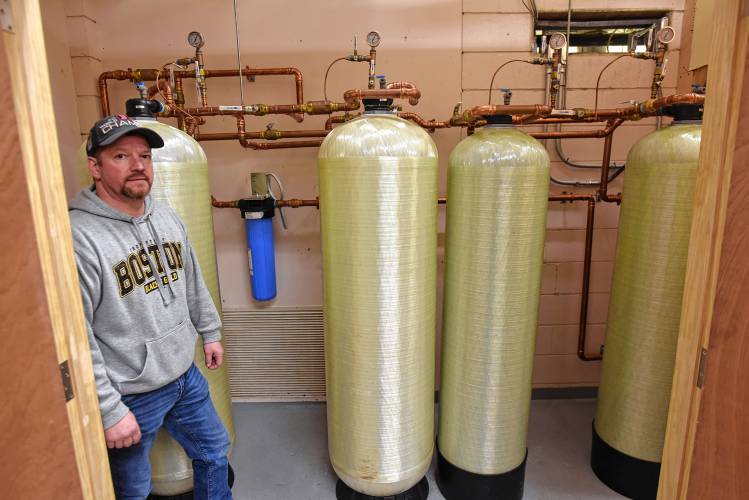
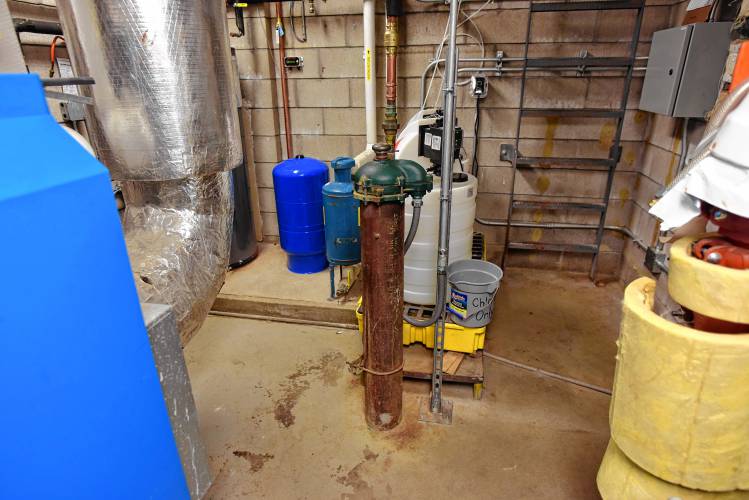
 No surprises in Wendell election
No surprises in Wendell election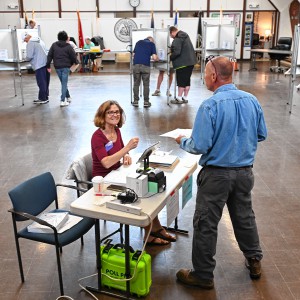 Political newcomer defeats Shores Ness for Deerfield Selectboard seat
Political newcomer defeats Shores Ness for Deerfield Selectboard seat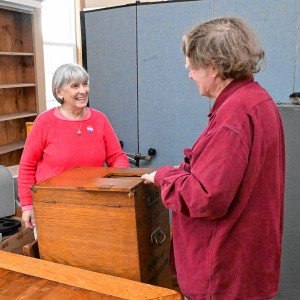 New Salem election ushers in new Selectboard member
New Salem election ushers in new Selectboard member Bridge of Flowers in Shelburne Falls to open on plant sale day, May 11
Bridge of Flowers in Shelburne Falls to open on plant sale day, May 11
